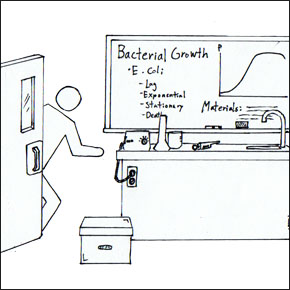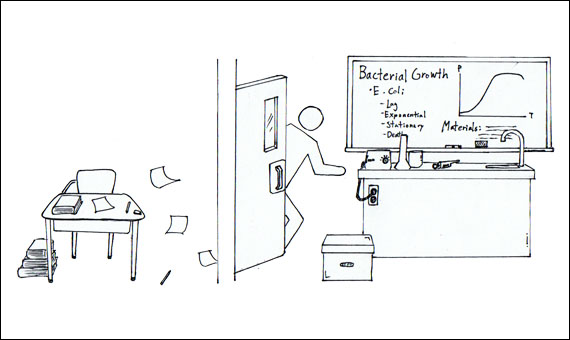

AP Biology is set to undergo some serious curriculum changes for the upcoming 2012-2013 school year. According to Katie Ward, the AP Bio teacher at Aragon, the College Board changed the curriculum “to put the student more towards the center and take ownership of the information, as opposed to being next to a textbook.”
One significant change with the modified curriculum is the culminating AP test at the end of the year. Currently, the test has 100 multiple choice questions and four free responses. Next year, the test will have 65 multiple choice questions, six to nine calculator questions, two essays, and six to nine short answers.
Ward says, “The test is dramatically changing, but it is a positive change because it will require the students to ponder the material more than just memorizing the material.”
“The purpose of the change is for students to see biology in more of a problem solving way, and for students to see multiple concepts presented in a situation,” Ward adds.
The other significant changes are in the labs. This year there were twelve required labs, and next year there will be two labs required for each big topic idea, but the instructor decides which labs are done. The College Board has repackaged the content under four big ideas and has suggested labs for each topic.
The modified block schedule for next year was created in part to benefit the science programs. Most of the labs require at least 48 hours to complete. With the new schedule, the labs can be performed with far less time constraints and lessen the need for 7 a.m. sessions.
Ward says, “The new labs are more student-designed, which has more focus on the ability of a student to generate a question that is related to a topic and create an experiment to help answer a question. The labs are verification labs right now, where we know what we should get. However, those labs are good, because we can learn from our mistakes. Both labs are necessary and can build off one another.”
In general, Ward believes, “The changes are going to ask the student to be more present in their experience, despite the large amount of responsibility in this class right now.”
Ward adds, “The tremendous amount of material that students learn in this class changes the way they see life. They see the living world around them so incredibly differently, and it deepens appreciation for life. I hope that whatever the changes are, that transformation for students still happens.”
AP US History is slated to receive similar changes in the 2013-2014 school year due to similar complaints regarding the broadness of the curriculum. The results of next year’s AP Biology changes will serve as both a model and an indicator for the future results of the APUSH changes. Additionally, Ward herself is also unfamiliar with what the changes will impact. She concludes, “We can’t tell if it’s going to be worse or better, all I can do is be hopeful.”
